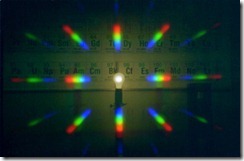Theories vs Hypotheses
Original Post: 4 May 2012
Posted Here: 4 December 2017
 Writing science fiction means that you need to get the science right – at least the science as we think we know it. Fantasy is different. As long as you’re consistent, you can make up your own rules. You might say that this is true in science fiction, too. Warp drives and subspace travel are based on made up rules. True. But fantasy can contradict known science. Science fiction can’t do that without a plausible explanation.
Writing science fiction means that you need to get the science right – at least the science as we think we know it. Fantasy is different. As long as you’re consistent, you can make up your own rules. You might say that this is true in science fiction, too. Warp drives and subspace travel are based on made up rules. True. But fantasy can contradict known science. Science fiction can’t do that without a plausible explanation.
Science fiction stories need to get the language of science right, too. Even if journalists and others in the media, educators, politicians, and the folks on the street don’t.
Have you ever heard someone say something like, “Oh, that’s just a theory” or “We’re not sure what’s causing these mysterious deaths, but we have some theories” or “Evolution is just a theory, so schools should be teaching our equally valid theory”? The sources of those statements have got their terminology wrong.
Science seeks explanations and there are two kinds of explanations: hypotheses (singular is hypothesis) and theories (singular is theory). Hypothesis is harder to say than theory, which may be why some folks find it easier to use theory when they should use hypothesis.
A hypothesis is an explanation which is just a guess. It may be an educated guess, but it’s still just a guess as to what the explanation is. A theory is an explanation based on evidence, data, information, or whatever you want to call it. To say, “We’re not sure what’s causing these mysterious deaths, but we have some theories” is wrong: “We have some hypotheses.” When we try to explain something, we first make some guesses (hypotheses), then we gather information/evidence/data which either says “No, this explanation is wrong” or “Maybe this explanation is right.”
It only takes one bit of evidence to prove that a particular explanation is wrong and should be discarded. The interesting thing is that evidence can’t prove that an explanation is right. It just supports the idea that it might be right. An explanation based on evidence is a theory. So, to says “Oh, that’s just a theory” is not a put-down – it’s high praise.
And the more supporting evidence we gather, the more sure we are that the explanation is right. We may even gather so much evidence that we say that we have proved the theory is right. But saying that we have done something doesn’t mean that we have. No matter how much supporting evidence we have, we can never know that a theory is right. Some folks can’t accept that, they know in their heart that they have proven the theory to be right. They haven’t. There must always be some uncertainty because we can never know that there is no observation that we might someday make that will provide the evidence that proves the explanation wrong.
Many folks can’t stand uncertainty. They think that this uncertainty is a weakness of science. If we aren’t certain, then the explanation is useless. Nothing could be farther from the truth. Newton’s Law of Gravity is used to send spacecraft to the ends of our solar system with great accuracy. But it’s wrong! Einstein’s Theory of Relativity provides a better, if less convenient, explanation of why the apple bonked Newton on the head. The strength, not the weakness, of science is the fact that it must coexist with uncertainty. Like Newton’s Law of Gravity, theories may be only nearly right but they are probably very useful. It’s more important that an explanation be useful than 100% right.
To recap: A hypothesis is an explanation that is just a guess. A theory is an explanation that is based on evidence. Regardless of whether we are writing science or science fiction, it’s important that we get it right.
Keep reading/keep writing – Jack